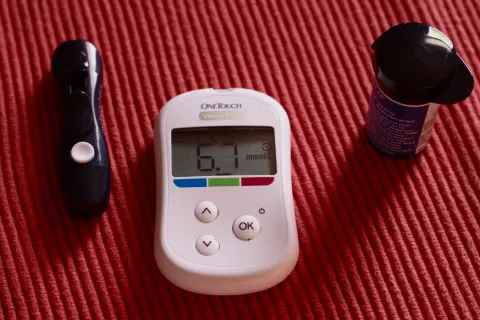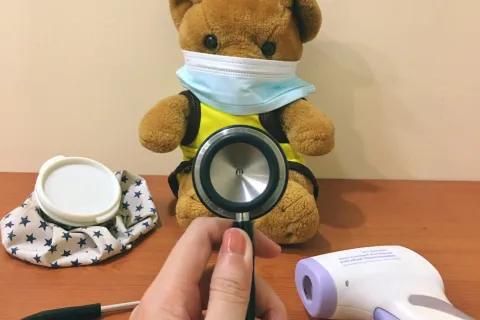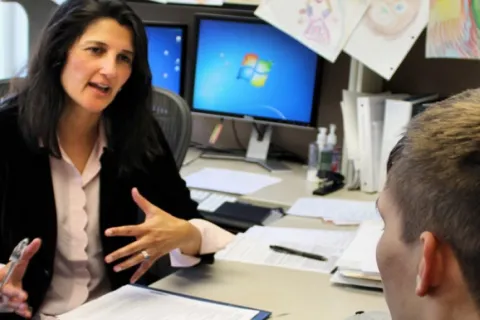Managing anxiety in children with autism
By Jeffrey Wood, PhDThis week’s “Got Questions?” answer comes from Jeffrey Wood, PhD, a psychologist at the University of California, Los Angeles. Three Autism Speaks research grants support Dr. Wood’s work on developing behavioral treatments for children with autism.
Editor’s note: The following information is not meant to diagnose or treat and should not take the place of personal consultation, as appropriate, with a qualified healthcare professional and/or behavioral therapist.
My eight-year-old with autism rips his clothes when he gets nervous at school. How can I manage my son’s anxiety?
Your son’s actions are not out of the ordinary for children with autism spectrum disorder (ASD). These nervous expressions may represent anxiety or repetitive behaviors. However, they could stem from other sources that would require a professional evaluation. For the purpose of this blog, however, we’ll focus on the likely scenario of anxiety.
Anxiety in autism spectrum disorder
Children with autism express anxiety or nervousness in many of the same ways as typically developing children do. We often see separation anxiety, for example, when children must part with trusted parents or caregivers to go to school or camp. Many children worry and become preoccupied with challenges such as homework, friends or health issues. These issues commonly affect both children with and without autism. However, social anxiety – or a fear of new people and social situations – is especially common among kids with autism.
If your child suffers from anxiety, he may experience strong internal sensations of tension. This can include a racing heart, muscular tensions, sweating and stomachache. Intense anxiety can result in repetitive behaviors that appear to serve no function, such as shredding paper or clothing.
Of course individuals with ASD often have trouble communicating verbally. So outward manifestations of anxiety may be the only clue that something is bothering them. Some researchers also suspect that outward, physical symptoms of anxiety may be especially prominent among those with ASD.
How to treat anxiety in autism
Cognitive behavioral therapy is a widely accepted psychological approach for breaking severe cycles of anxiety. It’s effectively used to help children with at least some verbal abilities. The first step in this process teaches children to identify the root of their fears. For example, a child suffering from separation anxiety may fear being permanently separated from his mother when he leaves for school. After identifying the perceived threat, the therapist can help the individual logically challenge his anxieties with evidence.
To gather that evidence, a second technique comes into play. We call it exposure therapy. This type of therapy allows individuals to face their fears in a progressive manner. For example, the therapist may ask the child who fears losing his mother to take a “baby step.” Let’s say spend one minute in a room without his mother. After his mother reappears, the child affirms that he was safe. The therapist then encourages the child to spend increasing periods of time apart from his mother. This can provide the evidence he needs to put his anxieties aside and feel safe.
Parents and caretakers can try these techniques at home, ideally with professional guidance. You can find a number of books on cognitive behavioral therapy for purchase online or in bookstores. Though these books are not autism-specific, I think you’ll find that the general approach can help you deal with your child’s anxieties. My colleagues and I have also published two manuals – one for therapists and one for teachers – that cover similar ground.
According to several studies, when it comes to treating anxiety, cognitive behavioral therapy ranks more effective than other talk therapies. In some cases, medications can help as well. [Editor’s note: Parents may want to consult Autism Speaks ATN/AIR-P Medication Decision Tool Kit.]
To find a cognitive behavioral therapist, I suggest visiting the website of the Association of Behavioral and Cognitive Therapists. Your child’s physician or your family’s health insurer may likewise be able to provide a referral to an expert in child anxiety who practices cognitive behavioral therapy or psychopharmacology with children.
Related resources:
- For guidance on assisting members of the school community in understanding and supporting students with autism, see Autism Speaks School Community Tool Kit.
- How common are anxiety disorders in people with autism, and are there effective treatments?
- Autism Speaks Resource Guide
- Contact the Autism Response Team









